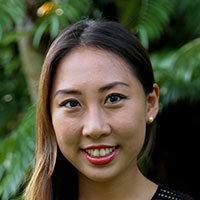Indonesia is the world’s largest producer of crude palm oil, churning out an estimated 33 million tons in 2016. Needless to say, oil palm is one of country’s largest employers. In 2011, oil palm plantations were estimated to directly support 1.46 million households in the country, impacting the livelihoods of millions of Indonesians.
Current government policies aim to revitalize smallholder oil palm plantations by enhancing the efficiency of smallholder producers, reducing the currently large productivity gaps between small and large- scale producers (plantations), and improving smallholders’ incomes. These targets are in line with broader agendas to reduce rural poverty and improve equality.
However, widespread concerns are being raised by researchers about the social effects of plantation agriculture. Gender issues are often relegated to the periphery of the debate around sustainable oil palm, even though women play a critical role in the sector as plantation workers, smallholders and integral members of the local communities.
To shed light on these issues, researchers from the Center for International Forestry Research (CIFOR), University of Brighton, University of Indonesia, and the Rights and Resources Initiative conducted extensive research in Berau, East Kalimantan, and Silat Hilir, West Kalimantan. Methods included household surveys and interviews with key stakeholders (women working in oil palm, the corporate sector, accredited social auditors and certification bodies, and nongovernmental organizations advocating for improved rights and delivering services to local people).

Their work culminated in this infobrief, which offers recommendations to the Roundtable on Sustainable Palm Oil (RSPO) in developing mechanisms for addressing gender inequities in oil palm and offering lessons for other certification standards such as Indonesian Sustainable Palm Oil (ISPO).
According to researchers, the current RSPO principles and criteria (P&C), guidance, and auditing mechanisms are not sufficiently gender specific. Gender is often grouped in with other forms of discrimination, or alternatively, gender issues are viewed as a household or communal matter and thus beyond the boundaries of the certification standard.













